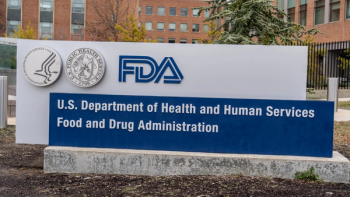
- Pharmaceutical Executive-08-08-2007
- Volume 0
- Issue 0
Pfizer Fires Three?
Pharma giant's house gets a little cleaner after whistle-blower's accusations
The maraviroc saga continues as a Pfizer internal investigation last week resulted in the sacking of three managers from the company's HIV division. One rep said the division VP of sales, Mark Brown, announced in a teleconference last week that Assistant Sales Manager Kelly Fitzgerald, HIV Sales Director Art Rodriguez, and Mid-Atlantic Director Bob Mumford were "no longer with the company."
Brown did not specify whether the execs had voluntarily resigned or been handed a pink slip outright. But "I think it is very safe to say that they were terminated," said ex-Pfizer whistle-blower Peter Rost, who broke the story with the New Jersey Star-Ledger's Ed Silverman on their respective blogs. "Three senior execs from one division leaving at the same time voluntarily doesn't usually happen," Rost added.
All the fuss stems from a sales rep who leaked copies of some pretty damning slide presentations and e-mails to Silverman's Pharmalot and Rost this past spring. These slides and e-mails pointed to off-label promotions for ailing HIV drug Viracept and the just-approved Selzentry (maraviroc). (FDA delayed the drug's approval in June--despite an advisory board's recommendation to approve--but approved it Monday afternoon.) Selzentry hadn't been approved when these materials were given to reps, but Pfizer had implemented an expanded access program for the drug.
While a company can't use any employee, sales rep or not, to promote a drug that hasn't been approved, FDA spokeswoman Crystal Rice said in the case of expanded access programs, patients and physicians can find out about the programs through FDA and National Institutes of Health, which have a Web site dedicated to that task (www.clinicaltrials.gov). If companies do recruit physicians, their materials may be closely scrutinized by FDA "for regulatory purposes," and their communication must be "about the program and not unapproved use of the drug." What the rules don't say clearly is how companies can recruit physicians for expanded access programs without illegally promoting an unapproved drug. "It's a fine line," Rice said. "Sponsor representatives may inform people about the existence of the program but must not overstate the data or value, make false or not proven claims about the drug, etc."
The Pfizer rep said she came forward because she felt her directives were illegal; she was subsequently "freezed out" of her division. She added that the three execs' exit gave her some satisfaction, though she still wonders why the situation arose in the first place.
The incident recalls the Neurontin debacle. Pfizer acquired fellow drugmaker Warner-Lambert in 2000, only to be slammed with a false-claims suit from the Department of Justice. Sales reps from Warner-Lambert had been doing a little off-label promoting of antiepileptic Neurontin (gabapentin), saying it could be used to treat bipolar disorder and Lou Gehrig's disease, among others, though FDA hadn't approved those uses. Pfizer agreed to pay $430 million in damages and entered into a Corporate Integrity Agreement with Health and Human Services.
The Selzentry /Viracept snafu may be deemed to have broken that agreement, which could spell profit-eating fines down the line. For the time being, the investigation, conducted by firm Ropes & Gray, remains internal. Pfizer didn't return requests for comment by press time.
Articles in this issue
over 18 years ago
J&J to Cut Costs and JobsNewsletter
Lead with insight with the Pharmaceutical Executive newsletter, featuring strategic analysis, leadership trends, and market intelligence for biopharma decision-makers.




